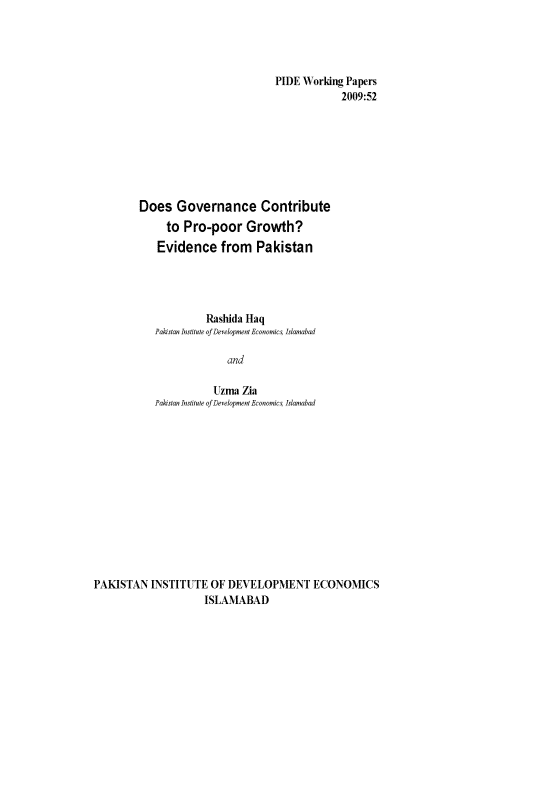Does Governance Contribute to Pro-poor Growth? Evidence from Pakistan (PIDE Working Papers 2009:52)
Economic growth is a driving force in reducing poverty, but experience has shown that good governance and pro-poor choices are vitally important in the process of alleviating poverty. This paper explores linkages between governance and pro-poor growth in Pakistan for the period 1996 to 2005. The analysis indicates that governance indicators have low scores and rank at the lowest percentile as compared to other countries. The dimensions of pro-poor growth, which include poverty, inequality, and growth, demonstrate that the poor do not benefit proportionately from economic growth. It is found that poverty and inequality have worsened and the share in income and expenditure for the bottom 20 percent has also decreased, while inflation for this lowestincome group is high as compared to the highest-income group. It is also observed that approximately 25 percent households reported that their economic status was worse than in the previous year, 2004-05. The results of the study show that a strong link exists between governance indicators and pro-poor growth in the country. Econometric analysis shows that there is a strong relationship between good governance and reduction in poverty and inequality. It is concluded that greater voice and accountability, political stability, regulatory quality, and rule of law can control corruption and the pro-poor policies, which ultimately reduce poverty and inequality in the long run. To face the challenge of good governance, Pakistan needs to formulate, and implement effectively, its governance policies to improve the governance dimensions, taking account of both higher growth and the aim of achieving the Millennium Development Goals, which require halving poverty by 2015.




